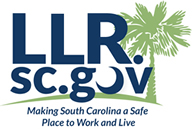Hello REALTORS®,
Later in this report, I cover National Flood Insurance Program authorization. Be sure to read through this report so you know what to expect this month regarding flood insurance. But first, signs.
Signs and sign ordinances can be beneficial to Realtors, but they also come with responsibility. Over the last several years, your REALTORS® Association successfully lobbied for protection of signs that communicate that real property is for sale while local sign ordinances were updated across the Western Upstate.
Almost a decade ago, the U.S. Supreme Court ruled in a Gilbert, Arizona, case that signs are protected speech. Most sign ordinances specifically exempted certain types of signs, like real estate signs. The problem was that those ordinances were based on what the sign said, which was the basis of the Gilbert case. That made it more challenging to protect real estate signs, but for the most part the new ordinances continue to protect real estate signs.
It is important that real estate professionals comply with local sign ordinances. Most of them allow a small sign on the property that is for sale. Some ordinances allow real estate professionals to post similar-sized lead in signs for a few hours during an open house.
On the commercial side, larger signs are allowed and if the property has multiple road frontages, more than one sign is allowed. The ordinances I have worked on usually state that when the property is no longer available for sale or rent, the sign must be removed.
Last week, I talked with a code enforcement officer at a local city. He asked that I share with you that it is important that signs be posted legally. Nearly all ordinances say something like this:
- One sign (two if the house is on a corner), 4-6 square feet, on the property available for sale or rent.
- One sign (two or more if the property has multiple road frontages), 16-32 square feet, on the property available for sale or rent.
- Some, but not all, ordinances allow lead-in signs for a few hours, usually on the weekends. But posting signs off the property for weeks at a time is a recipe for the signs to be confiscated and possible fines.
- All signs should come down when the property is rented or sold. That means the big commercial listing signs too.
The larger concern is if real estate professionals don’t comply. We could face proposals to take away your ability to use signs.
What you can do
The pushback I experience from local government officials about real estate signs is that they seem to remain up long after the property is leased or sold, and they litter every corner in town. Do your part to protect Realtors’ ability to use signs by removing signs after the property is sold or leased and take down open house lead in signs immediately after the open house.
Flood Insurance
I have not written about flood insurance in a while. You should know that the National Flood Insurance Program has been operating on a series of short-term authorizations for several years.
It was set to expire March 8, but Congress extended the program again until March 22. Your REALTORS® Association was instrumental in that extension. We continue to work for a multi-year extension of flood insurance.
Last year, we asked for your help by asking members to contact their members of Congress. You made the difference then. We haven’t had to do that lately, but it could happen again.
My ask is that you be ready to respond to a call to action from NAR on flood insurance. If you haven’t already done so, text “REALTORS” to 30644. We will add you to our REALTOR® Party Mobile Alerts and you will receive a text when we issue a call to action on an issue like flood insurance. I promise we won’t over do it. Our last member-wide call to action was for flood insurance last fall.
And bear in mind that if you are working with a client who will need flood insurance for their property, their ability to buy flood insurance could expire on March 22. For the latest on flood insurance, visit NAR’s Flood Insurance Page.
Support RPAC
RPAC is an important element of your Realtors Association’s advocacy program. I encourage you to support RPAC and we make it easy to do so—we include a voluntary RPAC contribution on your annual dues renewal. Simply pay it and you have support RPAC. If you want to do more, it’s easy.
Michael Dey, Director of Government Affairs



